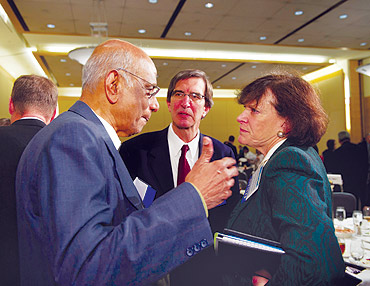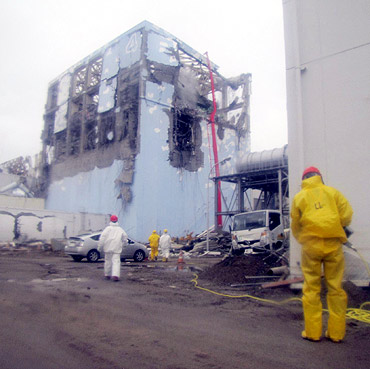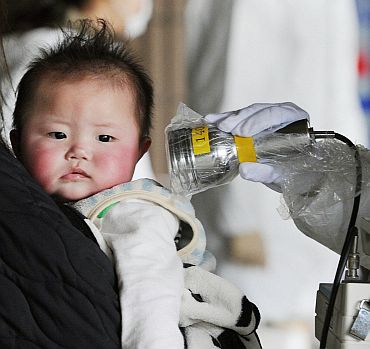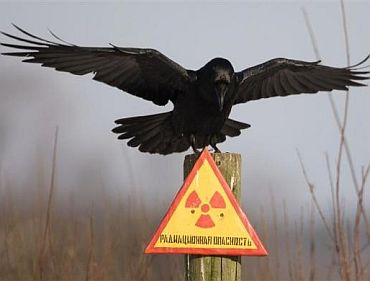
Dr Vallampadugai S Arunachalam is a former science adviser to five Indian prime ministers and 10 defence ministers. He was the most high-profile Indian participant and speaker at the major 2011 Carnegie International Policy Conference held in Washington, DC last week that attracted over 700 participants from more than 40 countries, including high-ranking government officials, policy and technical experts, industry leaders, academics, and journalists.
Arunachalam, who during his tenure as India's science advisor initiated major programmes in missile technologies, light combat aircraft, and other defense hardware, as well as projects on technology and education for national development, said concerns over India's nuclear energy program in the wake of Japan's nuclear disaster were unwarranted.
In an interview with rediff.com's Aziz Haniffa on the sidelines of the Carnegie conference, Arunachalam, a recipient of many Indian honours including the Padma Vibhushan, said a Japan-like nuclear disaster could never happen in India and even if it did, it would not have the repercussions as being witnessed in Fukushima, Japan.
Five years ago, Arunachalam left Pittsburgh, Pennsylvania, where he was a full time professor at Carnegie Mellon University, to establish his think tank in Bengaluru, the Centre for Science, Technology, and Policy, which he told rediff.com 'looks at various issues on energy, security and materials'. He continues to be a distinguished service professor at Carnegie Mellon, where taught for over a decade.
Japan's nuclear disaster has raised concerns over India's quest for nuclear energy and the state of its nuclear reactors and the reactors to be installed in the future.
The prime minister has made it clear that we would visit all the safety standards in all these reactors and that's a good reassuring thing. We should also point out that we have been running these, what's called the Canada Deuterium Uranium reactor type of reactors, for so many years without any major problem and this is the one that is called pressurized heavy water reactor, and it is going very well.
So, in a sense, we have all this experience. We also have excellent collaboration with people using these reactors, including Canada, South Korea and so on.
So, we are globally connected. You might remember, one of the complaints we are making about Japan is the fact that the Japanese had hesitated contacting others. On the other hand, when you are running power reactors, you are a global partner and we have an excellent ongoing relationship with all those running these kinds of reactors. So, I feel reassured that way.
Please ...

Japan initially was going it alone, and then realising that the disaster seemed out of its control and that of the expertise available domestically, did invite international experts, including several top experts from the US who are now working to prevent a total meltdown of the reactors. Will India ever face such a situation?
Not at all because we still have an excellent working relationship with people who run the CANDU type of reactors. So, we will not have a similar problem. The other reason is that there are many factors that prevent this kind of a thing growing up into a huge accident in India.
For instance, there is so much of heavy water on these things. The coolant problem is not there and the second is the fact that when the reactor is running, we can remove these fuel rods without disturbing it. So, that means we can break it anytime from criticality to sub-criticality.
The likes of Ron Somers of the United States-India Business Council argue that the Japanese reactors were of 1973 vintage. That the new reactors that American industry would install in India would not have such problems.
But lawmakers, scientists and experts in the United States are calling for a review of US nuclear reactors and also regulatory reform on the manufacture and installation of new reactors. During the plenary session on the implications of Japan's disaster, the chair spoke of the dangers of what he called India's crude reactors, implying there is always the danger of a similar meltdown. You had to shoot down that argument.
These fears are completely unfounded and there could be no such danger because the oldest reactor we have is the Tarapur reactor (in Maharashtra), and the Tarapur reactor is the same thing that General Electric has in the US as well.
We have been examining it and extending the life on the basis of the materials and their performance to the radiation. We absolutely have no problems. The reactors are not crude. In fact, as I pointed out during the discussion, we have been using robots more than the Japanese.

Are you convinced that the technical expertise in India is sufficient if ever such a disaster occurs in the event of a double-whammy like that in Japan? Or will you have to -- like the Japanese after the initial reluctance -- issue an SOS for international expertise and technical assistance?
I am convinced we are capable of managing it on our own. But we are also not so secretive as to say, I don't want others. The fact is, when you talk about energy, it's a global family.
After Japan, there are concerns in India also how committed these (foreign) multinationals will be in the event of a Japan-like disaster. The tragic events of the Bhopal disaster have also begun to resurface. So, couldn't all of this impact and create a kind of critical mass of concern and impact on the US-India nuclear deal, of which you were a staunch supporter?
Every technology has its problems. Every technology has solutions. We have to look into this. We have learnt a lot of lessons from Bhopal. We have learnt lessons of how to know what we are doing, what is the information, etc. We did not have that during the Bhopal days.
So, that should not be a problem now. About the agreement and so on, all agreements, you always will find some questions about their relevance, some questions on this and that.
These are all subject to negotiations and I am confident that we will pull these things through. But please remember, some of the reactors we are talking of purchasing are from Russia and France, and not necessarily from the United States.

In hindsight, do you believe it was a good move by India's Parliament to be insistent and pass the nuclear liability law despite US and Indian industry and business concerns?
Yes. And in this liability business, actually we are structuring a new road to this because this wasn't the one we were doing before with other countries. So, in a sense, we are pioneers. But how good is it? We will have to find out as we go along.
Nuclear accounts for only a meager amount of the energy that India needs. Even by the target dates of 2020 or 2030, it's not really going to address India's acute energy needs to such a great extent. So, are these risks worth it? Because, considering India's massive population and with the rapid urbanization that is taking place, you couldn't afford to have a disaster like in Japan.
Actually, if you calculate, the number of people dead after Chernobyl is about 20 or 30. One coal mine disaster every year takes a few hundreds. So, we are somewhat hysterical when it comes to the nuclear issue, but really speaking, nuclear is as safe as many other technologies.
You just calculate the amount of people who die because of the carbon particulates emission of our super thermal power stations, then you will find that this is not the price you pay.
Are you gung-ho about India aggressively going for nuclear energy and the construction of more reactors and that it should be an imperative policy directive, for India to maintain its impressive economic growth?
Absolutely. Because the atomic energy industry feels that they want by 2030, 115,000 megawatts, but actually our calculations show more conservative: about 65,000 megawatts that are achievable. I feel there is a need for it because right now we are about 160,000 megawatts in India and we want about 400,000 megawatts by 2020.
Even that will give only about 1,000 kilowatt hour per Indian per year. So there is a need for this and nuclear is one of the options among the many other options. We should explore all options.